At some point you might have heard the old adage, “You can’t fill a cup that’s already brimming over.” Throughout my years as a physician I’ve reminded myself to never bring a “full cup” attitude into my NICU. In other words, I am quick to remember that learning is a daily part of a caregiver’s job. If you really want to excel, you’ve got to hold out that cup of knowledge and consistently look for opportunities to fill it.
Today I’m going to share 10 personal reflections and lessons that help me treat patients with the care they deserve.
Prepare For The End Of The 3-Week Honeymoon
On average it takes about three weeks for families to realize that their baby is going to be in the hospital for a long time, and that they won’t necessarily like every caregiver that is involved in their child’s treatment. As doctors we can prepare for the “end of the honeymoon” with open and honest communication that manages parents’ expectations.Before You Assign Blame, Look In The Mirror
For some, it’s easier to pass the buck than it is to take responsibility. I remind myself to look in the mirror first before looking for someone to blame for a mistake. We get busy and forget the power of words; try to remember that when you do need to correct someone, be thoughtful about it. The right words spoken to someone can affect them for a lifetime. So can the wrong words.Building Consensus Among Caregivers To Avoid Mistakes
Everyone who takes care of a sick patient, especially a critically ill child, knows that communication is the glue that holds everything together. When caregivers don’t communicate, mistakes occur, so every day we have to view NICU care as a team approach. The best success comes from keeping everyone on the same page.Remember That It’s Always The First Time For Someone
Healthcare is definitely a learning experience. When things don’t go as well as you want, sometimes the tendency is to blame the rookie. At one point, however, you were the rookie, and so was I. Be conscious of that. We all need forgiveness at some point.Humans Still Make Mistakes
As humans taking care of humans, we’re not machines. Making mistakes is inevitable, and yet, many mistakes are preventable. When we have access to the right data, we can make the best decisions possible. This is one of the features I built into PediNotes based off my personal experience. I wanted to make it easier for every person involved in a baby’s care to access critical patient information in real time through a single platform, because every second counts.People Come And Go, While Institutions Last Forever
As physicians our careers eventually come to an end. You might not be around in 100 years, but the institution you impacted will be. What ultimately matters is the legacy you leave through the quality of your work, so strive to bring out the best in your workplace and those around you.Streamlining Communication With Families
Giving consistent messages to families is critical. Even if a thousand potential treatment plans are available for an infant, families don’t want to hear that. Caregivers should be communicating a single, focused plan to help put families at ease and show that there is consensus among their hospital team.It’s Still A Privilege To Take Care Of Someone’s Child
I’ve been asked throughout my career, “Why did you become a neonatologist?” The simple answer is, I like babies. I have children of my own, and I respect the immense trust that parents give us as caregivers taking care of their ill children.Keeping Sight Of The Big Picture
Most days in the NICU are pretty hectic. We get so task-oriented as caregivers that sometimes we forget to take a step back and view the situation through the lens of the family. Each family is going through something different and we need to keep sight of that while preparing them for their journey in the NICU.Technology Matters, Trust Matters More
Perspective is important when working in the NICU: families are putting the most precious thing they have in our hands, relying on us completely. Be very honest with families at all times. Try not to get caught up in technology because ultimately building and maintaining trust with those families matters more.
Now you’ve got some of my insights based on my career as a neonatologist. Curiously, the lessons aren’t always in the daily grind or the procedures of the job. Sometimes they come from where you least expect them. Just when you think you have it all figured out, a baby, co-worker, or family will come along and teach you something new. It’s part of what makes neonatology exciting.
Like me, I think you’ll find that throughout your career it’s less important to strive for a full cup of knowledge, and more important to strive for one that is steadily being filled.
I hope you’ve enjoyed this first blog series – subscribe today so you don’t miss out on future blogs and updates on PediNotes:





